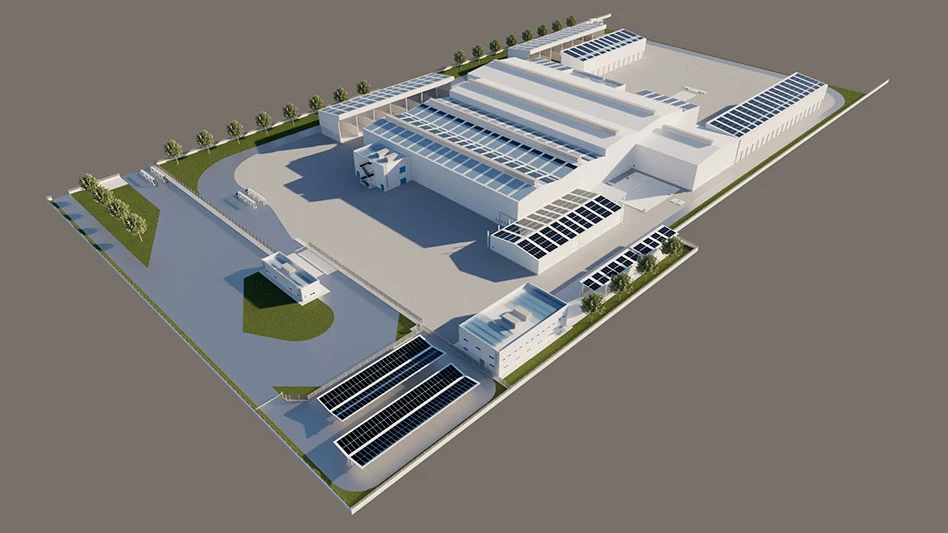
Image courtesy of Hydro
Norweigan company Hydro is investing 180 million euros ($196 million) to construct an aluminum recycling plant in Torija, Spain, that will be able to produce 120,000 metric tons of low-carbon recycled aluminum extrusion ingots annually. The aluminum will be supplied to key European industries, including transport and automotive, building and construction, renewable energy installations and consumer durable markets.
The investment is pending final build decision, which is expected in the second half of 2024, Hydro says. Production is expected to start in 2026.
The company says the plant will create approximately 70 new jobs once fully operational.
“Worldwide demand for materials like aluminum is growing as we build the infrastructure needed for the green transition,” says Eivind Kallevik, executive vice president for Hydro Aluminum Metal. “To reach our climate goals, we must also change how these materials are produced. Key European industries, including the automotive and building and construction sectors, need access to responsibly produced materials with a low-carbon footprint. Hydro’s new state-of-the-art aluminum recycling plant in Torija will be ideally positioned to help customers reach their sustainability goals by offering low-carbon aluminum with a high share of recycled postconsumer scrap.”
The extrusion ingots produced in Torija will complement the offerings from Hydro’s plant in nearby Azuqueca, Spain, and bring a wider range of Hydro’s value-added products to the European market, the company says.
Using its HySort advanced sorting technology, Hydro says it can create advanced materials with the highest postconsumer recycled content in the market. As a result, the company says it reduces energy use in the production phase while still offering high-quality aluminum with equivalent metallurgical properties that maintains the strong material and corrosion resistance needed in segments such as automotive.
RELATED: Padnos and Hydro form aluminum sorting JV
By applying process technologies developed at the Hydro recycling plants in Clervaux, Luxembourg, and Azuqueca, Spain, the company says it will be able to recycle up to 70,000 metric tons of postconsumer scrap at the new facility in Torija to produce DNV-certified low-carbon aluminum with a CO2 footprint below 4 kilograms for each kilo of aluminum produced in addition to Hydro’s premium product Hydro Circal, which has a guaranteed minimum of 75 percent postconsumer scrap and a corresponding CO2 footprint below 1.9 kilogram of CO2 per kilo of aluminum produced.
Latest from Recycling Today
- BMW Group, Encory launch 'direct recycling’ of batteries
- Loom Carbon, RTI International partner to scale textile recycling technology
- Goodwill Industries of West Michigan, American Glass Mosaics partner to divert glass from landfill
- CARI forms federal advocacy partnership
- Monthly packaging papers shipments down in November
- STEEL Act aims to enhance trade enforcement to prevent dumping of steel in the US
- San Francisco schools introduce compostable lunch trays
- Aduro graduates from Shell GameChanger program





